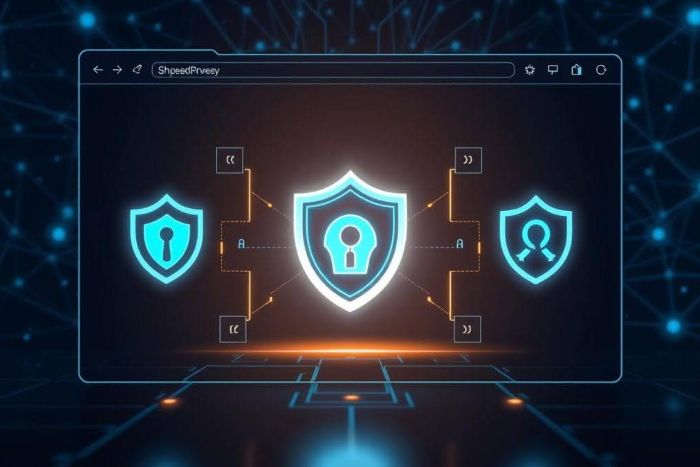Maintaining privacy online is becoming increasingly difficult. Nearly every app and website collects data about you – your preferences, your location, your browsing history, and much more. This is often presented as a way to “enhance user experience” and tailor content to individual needs. However, such data collection is unnecessary when anonymity is required – for example, when gathering information about competitors’ marketing strategies, running advertising campaigns, or handling other professional tasks.
That’s exactly when you need a browser with anti-detect technology. One such solution is the Linken Sphere browser. It’s a tool designed for true professionals focused on the efficiency of their projects. If you need anonymity, confidentiality, and secure access to specific resources in incognito mode, choose an antidetect browser.
Traditional Browsers vs. Antidetect Browsers
Traditional browsers, by default, collect as much user data as possible. They cache information, store cookies, and run scripts that track extensive details about users — from their country and location to the type of hardware they’re using. Even when you enable incognito mode, data collection continues (only your browsing history is not saved). This behavior cannot be fully disabled or customized – all popular browsers work this way; it’s an industry standard.
So, what does an antidetect browser offer instead?
Complete online anonymity. Instead of providing websites with real user information, an antidetect browser masks or alters the user’s unique digital fingerprint, thereby hiding the true system configuration. This means websites cannot detect the user’s operating system, device type, time zone, or IP address.
What are the benefits?
An antidetect browser can emulate multiple unique profiles, enabling you to log into multiple accounts simultaneously. It’s ideal for A/B testing, conducting independent marketing research, and analyzing competitors – you can see what ads they run, what tools they use, and how they operate online.
Who needs it?
Antidetect browsers are beneficial for anyone who requires anonymous web surfing, including:
- Digital marketers;
- Specialists setting up affiliate programs or ad campaigns;
- Professionals working with multiple marketplaces;
- Crypto traders who need complete data privacy;
- Cybersecurity experts;
- Software developers;
- Regular users who care about their digital security.
It’s a simple and convenient alternative to traditional browsers: even more comfortable to use, yet your data is protected far, far better.
How Fingerprinting Works (and Why It’s a Problem)
Fingerprinting is a unique digital portrait of a user. It represents a complex set of data that every browser collects about its clients. This includes information such as:
- The user’s OS and device type;
- Installed plugins;
- Time zone and language settings;
- Graphics card and WebGL data.
Moreover, browsers can access highly detailed parameters, such as the screen resolution of a user’s device.
What’s the problem?
Even when users switch to VPNs or proxies, traditional browsers still manage to identify them through various detectable metrics. As a result, platforms, websites, and applications can recognize when the same person logs in from the same device, even if they use different profiles or IP addresses.
The consequences:
- Account bans or restricted access;
- Distorted results in marketing research;
- Inaccurate cybersecurity audit data;
- Issues with marketplace account access.
Each professional field experiences these consequences differently, but they all share one thing in common: the risks can be avoided. An antidetect browser, such as Linken Sphere, creates a new digital identity for each session, preventing sensitive information from being shared with external platforms or websites. That’s the core secret behind how it works.
Key Features of an Antidetect Browser
Advanced fingerprint emulation is the main feature of Linken Sphere. This browser doesn’t just replace one metric with another – it creates entire digital personas. The emulation looks like a real user with realistic behavior. It’s much harder to detect because there are no data inconsistencies.
For example, a simple data substitution could make it appear as though someone is using macOS on a Windows laptop located in Japan, but with a London time zone. In contrast, the professional emulation in an antidetect browser ensures all data remains consistent and believable.
Here are the key features that make it so effective:
- Unique proxy server for each profile.
- Automatic consistency across all data, including geolocation, language, time zone, and more.
- Each profile in Linken Sphere appears as a separate device.
- This makes it impossible for websites and platforms to link them together, which is especially valuable when multiple profiles on one platform are restricted.
- Session data is stored securely in the cloud.
- You never lose access to your profiles and enjoy the same convenience offered by traditional browsers.
- High-level data protection and leak prevention.
- This feature ensures a clean, secure digital environment, free from tracking scripts and unwanted monitoring.
Conclusion
Every click you make in a regular browser is tracked and recorded, except when an antidetect browser protects you. It’s just as intuitive and user-friendly as traditional options, but behind the scenes, it performs technical magic: replacing real user data with realistic but unrelated information. Each new profile functions as an entirely new device.
So, when you need privacy, anonymity, and digital fingerprint protection, all while keeping the comfort of familiar browsing, choose an antidetect browser.
More convenience, less hassle!



































